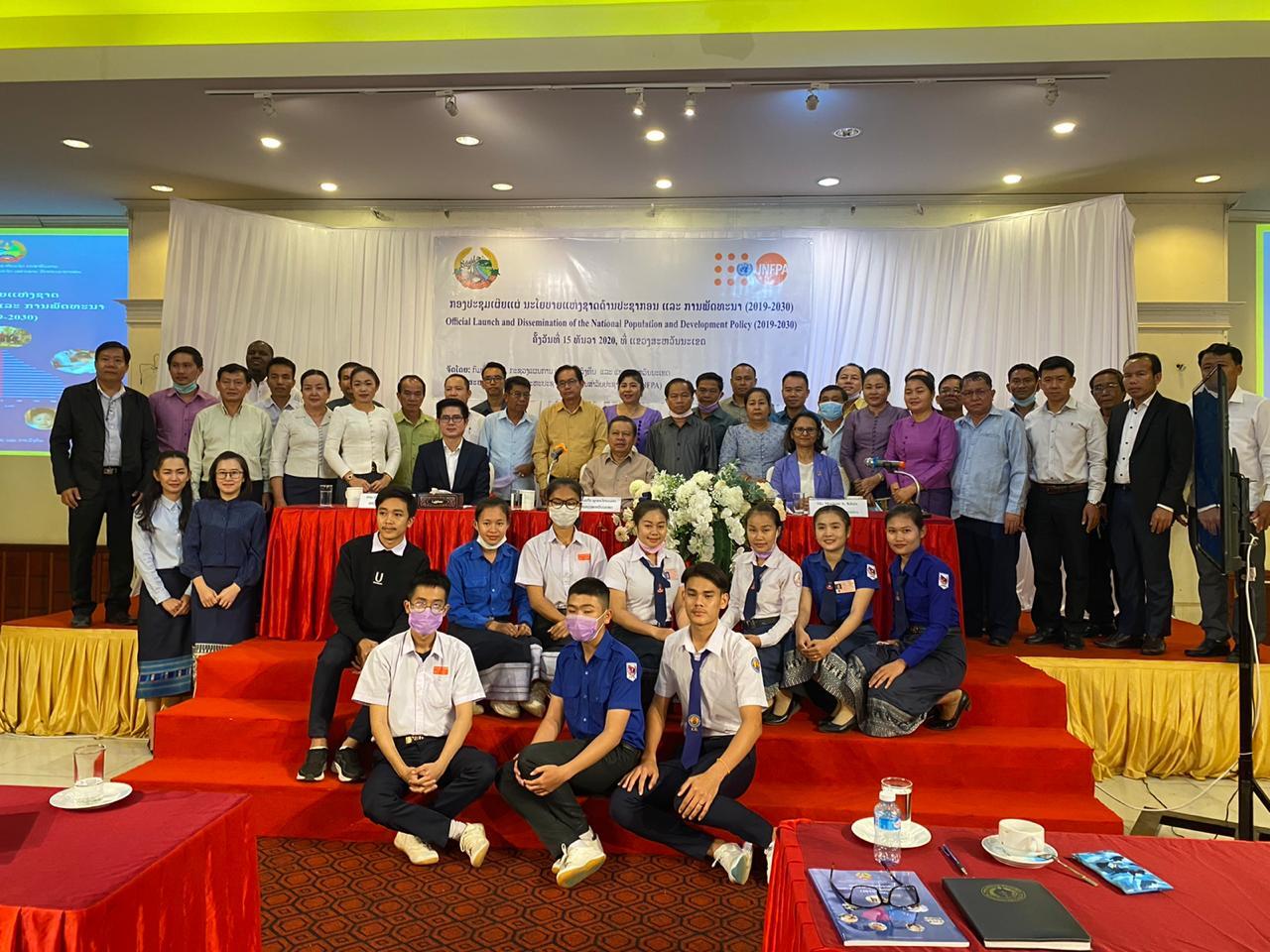Savannakhet 15th December 2020, The Ministry of Planning and Investments (MPI) and Savannakhet province with support of United Nations Population Fund (UNFPA) conducted the official Launch and dissemination of the revised National Population and Development Policy (NPDP 2019-2030). There are 57 provincial representatives from 6 provinces and related departments in Savannakhet attended the meeting.
The Department of Planning of MPI took a lead role in the process of NPDP revision resulting in having population dynamics fully considered and integrated in the policy. The revision built on the results of the assessment of population issues in the country.
The NPDP draws a roadmap of the way in which the Lao government intends to address population issues which provides a platform range of collaboration opportunities with domestic and international partners to accelerate ICPD25 and the Sustainable Development agenda 2030.
Lao PDR committed under ICPD25 to invest on the quality of data to acquaint the development of national plans. Data is indispensable to highlight key areas in need of strategic support to plan the mobilization of funds, the technical support and the way forward in sector or multi sector planning contributing to 9th NSEDP achievements
The NPDP is very important to foresee and mitigate challenges for a country with an important potential of demographic dividend. Lao PDR, is in the early stages of a demographic transition as it is entering a 20-year period during which it will have the largest share of working age population and fewer dependents (i.e. those below 15 years and above 65 years). The working age population will continue to raise from 62 percent in 2015 to 69 percent in 2030. Savannakhet Province would have the largest working age population by 2030. These features provide Lao PDR with a unique window for opportunities if well planned, however it also comes with some challenges, like need for more employment opportunities and more investment in human capital (health, education, technology, etc.).
“Our country has a younger population contributing to more than 60% of the total population and this trend will last for more than two decades. This is very good opportunity for Lao DPR to increase its growth both economic and social development, therefore we need to invest now on our adolescent and youth’s education, health and vocational development, so they will be skilled and healthy employees with high responsibility of the national and community development especially adolescent girl in the rural areas” said Mr. kaluna Nanthavongduangsy, Deputy Director General of DOP, MPI.
The revisions in the NPDP included, among others, integration of strong culture of data and situation analysis; incorporation of sector plan outcomes for clear responsibilities; inclusion of new emerging issues as well as the concept of the “demographic bonus”, which stresses the need for heavy investment in the education and training of youth; a comprehensive approach to social protection for the elderly; further reduction of infant, under-five and maternal mortality, improved access to reproductive health services, especially for youth, achieving gender equality, ending GBV, harmful practice and reducing socio-economic disparities.
“This policy is very important as a guide that provides clear direction and information for our province to understand and invest in human development especially in the areas of education, health and skills development for the youth. The province and district level need to translate this policy into actionable and detailed plans and ensure that all targets set are achievable according to the timeframe” said Mr. Thornkeo Phouthakaiyalad, Vice Governor of Savannakhet Province.
“Human capital depends on investments in education beyond the primary education level, but even more fundamentally it begins with investment in health, including sexual and reproductive health. This is particularly true as an entry point for the economic potential of women and girls. A population policy allows planners to take a people centered approach for budgeting and ensuring the right investments in health and education are made”. said Ms Mariam A Khan, UNFPA Representative
For more information please contact:
Mr. Phonexay SITHIRAJVONGSA,
Monitoring and Evaluation Officer, UNFPA Lao PDR
Email: sithirajvongsa@unfpa.org
Miss Phetmany Viyadeth,
National Communication Consultant UNFPA Lao PDR
Email: viyadeth@unfpa.org
************
UNFPA, the UN's sexual and reproductive health agency, works in over 150 countries including Lao PDR, to achieve zero maternal deaths, zero unmet need for family planning and zero gender-based


